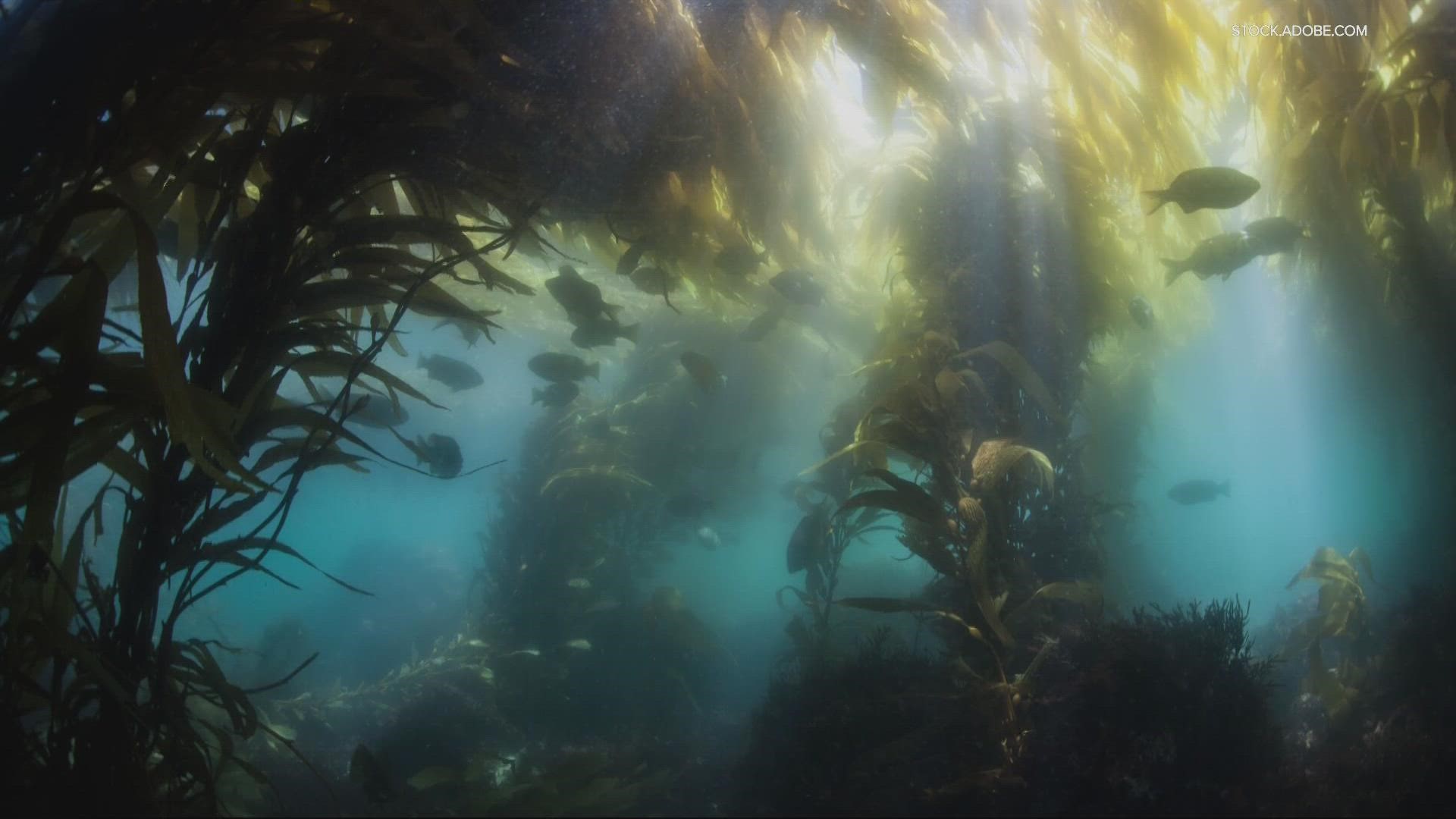OREGON, USA — An Oregon State University (OSU) researcher said important kelp forests off the West Coast are feeling the impact of climate change, which could affect products people use every day.
Zachary Randell recently earned his Ph.D at OSU and led a study in conjunction with the United States Geological Survey (USGS) in Southern California.
Originally from Alaska, Randell said he has been diving since he was 15 years old. He dove beneath the waves again to conduct underwater surveys of the sea floor and document where kelp forests are thriving and dying.
"These kelp forest ecosystems are fragile and imperiled right now," Randell said.
Randell's team observed changes over time on different parts of the sea floor, adding to 40 years of previous documentation.
Data show some kelp forests are dying, impacted by a number of factors, including climate change and warming ocean waters.
"Kelp likes cold water," Randell explained.
The climate factor dominoes into other species.
Urchins eat kelp and, with a dwindling number of predators, urchins can overgraze and deplete kelp forests.
"Every square inch of the sea floor is just a battleground for survival," Randell said.
Randell's research, recently published in a national journal, showed kelp struggle in flatter areas of the ocean and thrive in more rugged terrain.
The information is valuable to other researchers who are working to plant and restore kelp forests in the most successful areas.
"To give them the best chance possible," Randell said.
Teams that restore kelp forests use Randell's research to help create better balance in the ecosystem, sometimes reintroducing urchin predators, such as sea stars.
Randell described kelp as a foundational species, occupying nearly half of the world’s marine ecoregions. Kelp forests provide essential habitat, food and refuge for many species.
Research has shown climate change is causing more frequent weather and ocean events that also impact kelp forest survival and viability.
"The climate change issue is so complex," Randell said.
Despite being detached from most people's everyday lives, kelp has many important uses in consumer products. A compound from kelp is used in cosmetics like toothpaste and shampoo and even in sweets like cake and ice cream.
Randell hopes by sharing the importance of kelp, public interest and funding toward this type of research will gain momentum.
He was recently hired by the Seattle Aquarium to do similar work. He will use remote-controlled submarines to document species in Washington waters.
"Exploring the unknown," Randell said. "It's captivating for me."
RELATED: New research from Oregon State University could help people with Alzheimer's and Parkinson's

